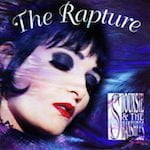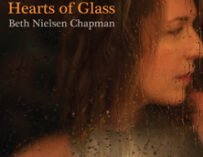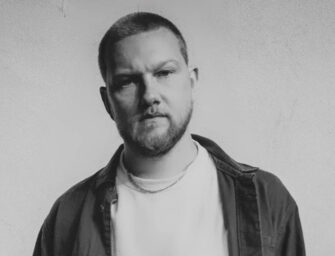
Siouxsie Sioux
The final four studio albums by Siouxsie & The Banshees get reissued on CD – complete with bonus tracks, naturally

![]() ollowing the reissue of the first four Banshees albums in 2006, and of four more in 2009, Universal Music now finishes the job, with these four re-releases which represent the final four studio albums recorded by this seminal band.
ollowing the reissue of the first four Banshees albums in 2006, and of four more in 2009, Universal Music now finishes the job, with these four re-releases which represent the final four studio albums recorded by this seminal band.
And the Banshees, as this collection shows, were truly ‘seminal’ in more ways than one. Their earlier work may have kickstarted the whole gothic punk/gothic rock movement, but Ms Ballion is no one-trick pony by any stretch of the imagination, and these later long-players embraced an altogether broader, more experimental musical palette. The Scream, Join Hands and Juju may have spawned a legion of black-clad imitators, but it’s undoubtedly these later long-players that have had the wider impact.
And if that sounds like a controversial statement, then just ponder this list: Tricky, Morrissey, Jane’s Addiction, Sonic Youth, Radiohead, Jeff Buckley, Red Hot Chili Peppers, Suede, Garbage, LCD Soundsystem, Sinead O’Connor, Bloc Party, Massive Attack, The Weeknd, PJ Harvey, U2, Tracey Thorn and Basement Jaxx. Those are just some of the artists who’ve cited the Banshees as a key influence, covered or sampled their tracks, or collaborated with Siouxsie herself. Which we’d say puts 45 Grave copying her make-up somewhat in the shade!
 The first album in this set, 1987’s Through The Looking Glass, was a covers collection produced in a bid to regain a sense of spontaneity after the protracted recording of 1986’s Tinderbox. It spawned two hit singles in the form of The Passenger and Wheels On Fire, while also getting the cover treatment were songs by The Doors, Bryan Ferry, Kraftwerk, Tom Verlaine and more.
The first album in this set, 1987’s Through The Looking Glass, was a covers collection produced in a bid to regain a sense of spontaneity after the protracted recording of 1986’s Tinderbox. It spawned two hit singles in the form of The Passenger and Wheels On Fire, while also getting the cover treatment were songs by The Doors, Bryan Ferry, Kraftwerk, Tom Verlaine and more.
But if Through The Looking Glass hinted at the band’s increasing eclecticism, then 1988’s Peepshow drove the message home with a vengeance. Tracks like Scarecrow and Turn To Stone may have trodden familiar ground, but elsewhere on the album could be found elements ranging from dystopic nursery rhymes (Rawhead & Bloodybones) to guitars straight from a bluegrass hoedown (Burn-Up). And that’s not to mention the truly groundbreaking title track with its off-kilter French accordions, reversed drums and jazzy, proto-triphop sensibilities.
“You need ‘The Rapture’ in your collection, simple as that”
 1991’s Superstition was, to these ears, a less successful proposition. Yes, it spawned one killer single in the form of Kiss Them For Me – a track that saw the Banshees troubling the Billboard Hot 100 for the first time in what was by then already a 15-year career – and yes, there are other fine moments, such as the dreampop-ish Softly. But perhaps due to the choice of producer (Stephen Hague, known for this work with OMD and Pet Shop Boys), the album as a whole has a little too much of an ‘epic 80s pop’ sheen to sound anything other than somewhat dated today.
1991’s Superstition was, to these ears, a less successful proposition. Yes, it spawned one killer single in the form of Kiss Them For Me – a track that saw the Banshees troubling the Billboard Hot 100 for the first time in what was by then already a 15-year career – and yes, there are other fine moments, such as the dreampop-ish Softly. But perhaps due to the choice of producer (Stephen Hague, known for this work with OMD and Pet Shop Boys), the album as a whole has a little too much of an ‘epic 80s pop’ sheen to sound anything other than somewhat dated today.
In complete contrast, 1995’s The Rapture was a triumph. With the 90s now in full swing, this was the album that saw the band’s new direction now fully realised. If you’ve ever bought a Moloko, Goldfrapp, St Vincent or London Grammar record, then you need The Rapture in your collection, simple as that – because the originals are always the best.
 In terms of bonus material, there’s not a huge amount to tell you. Through The Looking Glass gets four b-sides and remixes, Peepshow two plus a live recording from Lollapalooza in 1991, Superstition two remixes of Kiss Them… (one previously unreleased) plus Batman Returns soundtrack contribution Face To Face, while The Rapture now includes an alternate version of New Skin recorded for the Showgirls soundtrack, plus the previously unreleased (and suitably angry-sounding) FGM.
In terms of bonus material, there’s not a huge amount to tell you. Through The Looking Glass gets four b-sides and remixes, Peepshow two plus a live recording from Lollapalooza in 1991, Superstition two remixes of Kiss Them… (one previously unreleased) plus Batman Returns soundtrack contribution Face To Face, while The Rapture now includes an alternate version of New Skin recorded for the Showgirls soundtrack, plus the previously unreleased (and suitably angry-sounding) FGM.
So it’s not for the bonus material you’ll want to pick these up, then. Rather, it’s because they represent a sometimes overlooked period in the career of a British musical legend who continues to surprise and innovate (see, for instance, 2007’s Mantaray) today. Respect is most definitely due.
Verdict: Four albums that marked a creative sea-change, though with hindsight some are more essential than others
![]()
![]()
![]()
![]()
![]() (Through The Looking Glass)
(Through The Looking Glass)
![]()
![]()
![]()
![]()
![]() (Peepshow)
(Peepshow)
![]()
![]()
![]()
![]()
![]() (Superstition)
(Superstition)
![]()
![]()
![]()
![]()
![]() (The Rapture)
(The Rapture)
Russell Deeks

































Related Articles